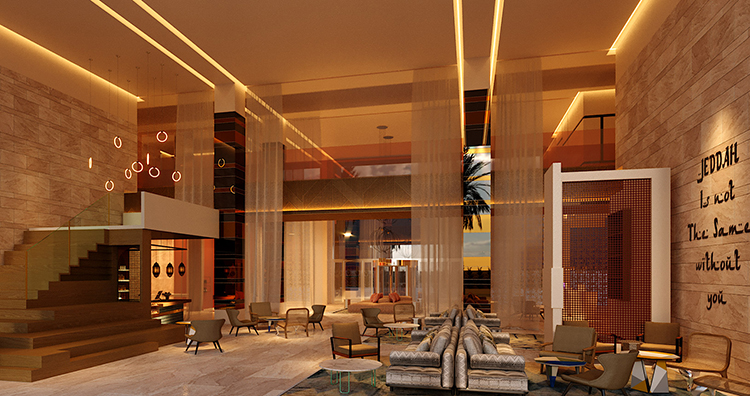We spoke with Marloes, who recently received CEO Today’s Business Woman of the Year Award, about her pioneering approach in hospitality and her ambitions for the company.
You’ve been the CEO of Kerten Hospitality for five years, and the company has come a long way since your appointment. How does your approach to hospitality set you apart in the market?
What’s important to us is what people build inside buildings and the communities they create through the use of our spaces. Our lifestyle destinations are about creating environments where people can come together; environments that cultivate a feeling of collaboration and belonging, connecting people through the different ways they live, work and play. Ultimately, we’re bringing life into the brick and mortar by re-energising buildings from the inside out.
To do this, we’ve pioneered a brand-in-brand business model that combines our hospitality lifestyle brands and adapts them to fit each individual project to optimise development costs and maximise return on investment. This allows project developers to partner with a single operator to create a customised local solution based on your desired market positioning.
We are fortunate to have partnered with incredible visionaries and like-minded owners that are looking to bring value to the whole ecosystem of their project. This is, however, a lot harder to find than you might think. Whilst there are plenty of potential partners that have the wealth, access to funds, or properties, it’s not so easy to find people who see where the world of living, working and hospitality is going and have the vision and the drive to actively address it and take advantage of it.
What challenges have you faced and how did you overcome them?
Developing and growing the business at a fast pace while creating a scalable organisational structure and regional teams, has been one of the biggest challenges, not just for me, but for everyone in the company. That said, we’ve been able to achieve a great deal in a short period of time because we have built a fantastic team of like-minded disruptors and hotel rebels who continuously push the envelope of innovation and are driven to deliver value to every project.
Beyond the internal challenges, the current global situation is by far the biggest challenge that we – and indeed our industry – have to deal with. We’re faced with unprecedented events caused by the COVID-19 pandemic that are severely impacting our industry and the global economy. It’s too early to say what the outcome of this will be and for now, we are vigilantly monitoring the situation to ensure the health and safety of our guests, colleagues and partners and mitigate the impact on our business.

Your portfolio includes several brands which are distinctive and yet seem to have a clear synergy. What is it that you look for when bringing new concepts to market?
Our portfolio of aspirational brands includes hotels, serviced apartments, branded residences, co-working spaces and offices as well as food & beverage concepts. Our brands have been developed as a response to the demand for highly personalised experiences, specifically from the savvy generation of well-connected millennial travellers.
For example, our award-winning luxury brand, The House Hotel, is a unique collection of lifestyle boutique hotels that appeal to affluent travellers seeking discovery through authentic experiences, while Cloud7 is an inventive and affordable mid-market brand, focused on locality and culture.
Our modern workspace and business club concept, Ouspace, offers tailormade office spaces for short and long-term let, enabling entrepreneurs and businesses to work flexibly and collaboratively. What’s interesting about this concept for owners and investors is that each outlet is designed to nurture the individual features of the development or location in which it resides, offering the opportunity to transform traditional meeting and conference areas or floors into holistic hubs for innovation, productivity and networking.
Whilst each brand works well on its own, they share a seamless connection which allows them to sit alongside each other in one building or a larger scale mixed-use project. This approach is epitomised by our project in Jeddah, where The House Hotel is in the heart of City Yard that features Ouspace as a co-working space, an alternative to what would have been traditional hotel meeting rooms, as well as a super interesting mix of 12 innovative, local and international restaurant and lounge concepts.
What do you think are the most important initiatives and trends affecting the tourism sector and how are you incorporating these into your development strategy?
We live in an era defined by technology and connectivity with an urge for instant delivery on the expectations of a hyper-customised experience by new savvy generations of travellers. Whilst they aren’t the first generation of adventure travellers to seek such experiences, the prevalence of low-cost carriers and accommodation has made travel easier and cheaper than ever before, while technology enables us to connect anywhere at any time.
This shift has paved the way for Gen Z travellers who are creating their own unique nomadic lifestyle and as the lines between living, working and travelling are blurring, we see a significant change in what guests expect from a hotel experience.
To date, Kerten Hospitality has mainly been seen as a hotel company, but you are also committed to developing new culinary concepts. How does this fit within your broader strategy and what factors are driving this approach?
For us it’s about creating integrated lifestyle destinations for people to live, work and play and food is a very important part of that, so it naturally fits within the scope of our ambition, in the same way that hotel rooms, serviced apartments and meeting spaces do.
When you look at places like Saudi Arabia, where some fantastic home-grown brands are making their mark at the moment, we can see that there’s a hunger for innovative concepts, particularly in Riyadh’s culinary scene. In a competitive market like this one, with so many start-ups vying for attention, we see a real opportunity to introduce our market-style Food Souk concept, a food & beverage incubator to help investors to create added value in their real estate projects by elevating the F&B value proposition with fresh and innovative dining experiences.
In the same way, we work with like-minded disruptors on the hotel side. Our ambition is to create stand-out culinary experiences with our in-house Michelin-star Chef Jaume Puigdengolas. Through his upbringing on a farm in Spain and his work across the Middle East, Chef Jaume has developed an infectious passion for fusing global trends with local cuisines and traditions which is perfectly aligned with our disruptive take on hospitality.
Last year, Kerten Hospitality began to realise its ambition for global growth, with a particular focus on Saudi Arabia as an entry into the Middle East. What is so special about the market that made it the right platform to introduce the company and its brands to the region?
Since the announcement of Saudi Arabia’s Vision 2030, the country has seen progressive reforms and an uplift in GDP and tourism, coupled with the enthusiasm of the young generation to deliver on the country’s potential, which is encouraging hospitality operators and owners to develop innovative hospitality concepts in the Kingdom.
The market is seeing a boom in hospitality projects with a lot of capacity in the mid-market segment – something which we’re excited to capitalise on with our Cloud7 brand. There’s also a lot of opportunities for smaller, boutique offerings to make their mark, not just in cities like Riyadh, Jeddah and Makkah, but in second and third-tier cities which, with the right development, are sure to come into their own over time.
The key to success is a strong, agile and dynamic team that shares one vision and can do what it takes to deliver.
Our first project – Ouspace Madinah Road – opened with great success in Jeddah last year, offering tailormade co-working and office space for short and long-term let, enabling entrepreneurs and businesses to work flexibly and collaboratively.
We’ll be opening our first mixed-use project later this year as part of a one-of-a-kind hospitality project in Jeddah. The City Yard complex will be Saudi Arabia’s first boutique mixed-use lifestyle destination, featuring The House Hotel Jeddah City Yard – the first hotel in Saudi Arabia to be part of the Design Hotels™ collection – as the focal point.
City Yard will also be home to the second Ouspace in the city, the Social Hub - a relaxed space which will be used for pilates and other lifestyle community activities; and the buzzing central Plaza, where guests and residents can enjoy a vibrant collection of exciting restaurants and lounges with a busy event and entertainment calendar designed for people to come together and connect in a meaningful way.
What other markets are you set to enter in 2020?
With five new projects in the pipeline, 2020 is a super exciting year for us. In addition to Saudi Arabia, we’re excited to have signed our first project in Jordan, where we are debuting our contemporary mid-market Cloud7 brand with the opening of the Cloud7 Residence Ayla Aqaba in June, which will have 75 one to four-bedroom serviced apartments within the exclusive Ayla Oasis development on Jordan’s Red Sea coast, a unique ‘bleisure’ destination.
Later on this year, we’ll be opening The House Hotel Old Tbilisi, a boutique hotel in Georgia’s historic capital followed by our second boutique mixed-use project in Vake, Tbilisi towards the end of the year. We will also be making our debut in Kuwait with the opening of The House Hotel Al Khiran.
You have spoken before about how, as a young and dynamic business, people are the key to your success. How is the business preparing for this new era of growth?
Our people are the DNA of our business. What started as a two-member team has grown to over 160 employees - a strong, agile and dynamic team that shares one vision and can do what it takes to deliver on it. This is the key to success.
To support our rapid growth, we’re looking for bright talent at all levels. For us, that means embracing the younger generation and engaging locals in each market. For our projects in KSA, we recently hosted a recruitment event at which more than 1,500 Saudi Nationals applied for 25 roles. This was extraordinary and typically unheard of as, until recently, hospitality wasn’t a sector that had a particularly strong appeal to the local population. The young generation is seeing the changes that are taking place and are keen to be part of something special and we’re looking forward to supporting them as they embrace a career in hospitality.
As a mixed-use operator, our needs and ways of working are different from a more traditional hotel operator. We require professionals with an entrepreneurial mindset and operational agility that can turn trends into opportunities. It’s one of the reasons we launched our ‘Talent Tank’ internship programme last year – to help us find the best talent.
What is your vision for the future of the company?
Growth, growth and more growth! Entering more geographies, welcoming more guests and extending our network of owners and partners around the world. The establishment of unique communities for residents, guests and owners is what we’re in business for, with the ultimate goal of ‘shaping the future for better living’.











